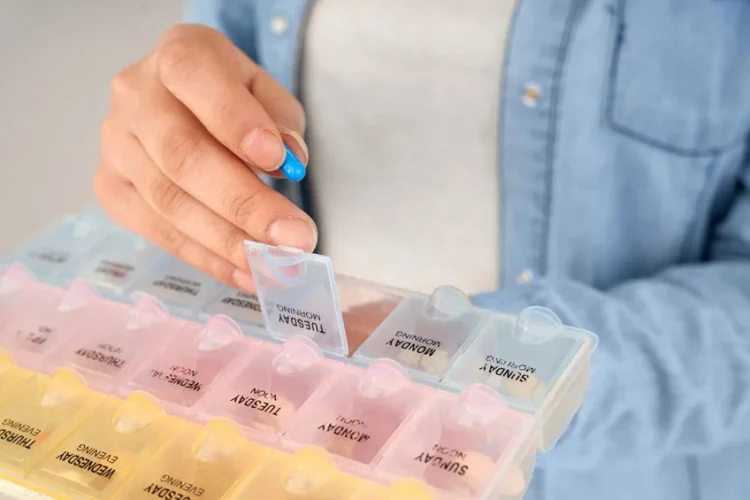Me and You and My Medication: Navigating Mental Health, Relationships, and the Power of Medication

This article explores the importance of understanding mental health, the role of medication in managing mental health conditions, and how to navigate relationships while dealing with mental health challenges. Through personal reflection, professional insights, and practical advice, we will explore how medication affects not only individuals but also their loved ones, and how to create supportive environments for healing and growth.
Table of Contents
ToggleUnderstanding Mental Health and Medication
Mental health is not just about the absence of mental illness. It encompasses emotional, psychological, and social well-being, influencing how individuals think, feel, and act. Mental health affects how people handle stress, relate to others, and make choices. Mental illnesses can interfere with these processes and may impact a person’s ability to function in daily life.
For some, medication is a necessary tool in managing mental health conditions. These medications are prescribed by healthcare professionals and can help to correct chemical imbalances in the brain, alleviate symptoms, and improve quality of life. The most common types of medications used to treat mental health disorders include:
- Antidepressants: Used to treat depression, anxiety disorders, and certain other conditions.
- Antipsychotics: Used to treat conditions like schizophrenia or bipolar disorder.
- Mood stabilizers: Typically used in the treatment of bipolar disorder to prevent extreme mood swings.
- Anti-anxiety medications: Used to reduce symptoms of anxiety disorders, often in the short term.
- Stimulants: Commonly used in the treatment of ADHD to increase attention and focus.
Medication often works best when combined with other treatments like therapy or lifestyle changes. However, the decision to use medication is a personal one, and it is essential to work closely with a healthcare provider to ensure that it is the right choice.
Medication and Me: A Personal Journey
Living with a mental health condition can feel isolating, but the addition of medication into the mix can add another layer of complexity to daily life. When I first started taking medication for my mental health, I was unsure of how it would impact my sense of self. I was wary of how others would perceive me and whether the medication would make me feel “different.”
At first, there was a sense of relief. The medication helped to ease the constant weight of anxiety and depression that had once been a daily struggle. However, as I settled into the routine of taking my medications, I realized that it wasn’t just about me and my mental health. It was about how this medication would affect my relationships, both personal and professional.
Medication and You: How It Affects Relationships
One of the most difficult aspects of managing mental health with medication is the impact it can have on relationships. Whether you’re dating, in a long-term partnership, or dealing with family dynamics, the presence of mental health issues—and the use of medication—can create tension or misunderstanding.
- Romantic Relationships: In a romantic relationship, the issue of medication can be tricky. My partner, like many others, initially had questions about why I was taking medication and whether it would change who I was. Would it alter my personality? Would it affect the dynamic between us? At first, these were valid concerns, and we had several conversations about what the medication was doing and how it was making me feel.
Medication can lead to changes in mood, energy levels, or even sexual function. These side effects might affect intimacy or communication in relationships. It’s essential for both partners to be open and honest, discussing any changes that might occur and being patient with one another as adjustments are made.
One of the most important lessons I learned was that it was okay to not have all the answers. My partner didn’t have to fully understand my medication regimen, but their support and willingness to listen were key. A good relationship is built on empathy and mutual respect, and when it comes to mental health, these qualities are more important than ever.
- Family Dynamics: The role of medication in family relationships can be equally complex. When I first started taking medication, my family had mixed feelings. Some members were supportive, recognizing that it was a positive step toward healing. Others were more skeptical, unsure of how long-term medication use might affect me.
Families may struggle with accepting the reality of mental health treatment, often due to misconceptions or a lack of understanding. Some individuals may view medication as a sign of weakness or may feel that the person taking medication is “not themselves.” These attitudes can create tension, particularly if the person with the mental health issue is also struggling to understand their own treatment.
It took time for my family to understand that medication was not a quick fix but part of a larger process of healing. Over time, I encouraged open discussions about mental health, which helped dispel some of the stigma around it. Medication is just one piece of the puzzle, and with a support system in place, navigating these relationships became more manageable.
- Friendships and Social Circles: Maintaining friendships while managing mental health can be challenging, especially when medication is involved. Friends may not always understand the highs and lows associated with mental health conditions or the effects of medication on emotions and behavior.
Early on, I found that some friends were more understanding and open about my medication than others. While some were curious and supportive, others distanced themselves, unsure of how to navigate the changes. Social dynamics can shift, especially when mental health challenges are involved, and it may be necessary to reevaluate certain relationships.
In the end, it became clear that true friendships are built on mutual respect, trust, and understanding. It was important for me to communicate openly with my friends about my experiences, while also giving them the space to express their feelings. Over time, my friends and I developed a deeper understanding of each other’s needs, creating stronger and more supportive connections.
The Power of Communication: Navigating Medication with Loved Ones
Communication is the cornerstone of any relationship, but it becomes even more crucial when mental health and medication are involved. To navigate the complexities of relationships while managing mental health, it’s essential to approach conversations with transparency, compassion, and patience.
- Being Honest About Your Needs: One of the first steps in navigating relationships while on medication is to be honest about your needs. It can be difficult to admit that you’re struggling, but doing so is crucial for your own well-being and for maintaining healthy relationships. Letting your partner, family, and friends know how they can support you—whether it’s through a simple check-in or allowing space when you’re feeling overwhelmed—can go a long way in fostering understanding.
- Setting Boundaries: Medication can sometimes lead to unpredictable side effects, such as fatigue, irritability, or emotional numbness. It’s important to set boundaries with others and communicate when you need space or time to yourself. It’s okay to say no or to ask for understanding when you’re not feeling your best.
- Listening to Others: Just as it’s essential to express your own feelings, it’s also important to listen to those around you. Your partner, family members, or friends may have their own concerns or questions about your treatment. Take the time to listen to their feelings and address any misconceptions or fears they may have.
- Educating Others: In many cases, people may not understand mental health conditions or the role of medication. Providing resources, articles, or simply having open conversations about what you’re experiencing can help others better understand your journey. This can break down stigma and create a more supportive environment.
The Road Ahead: Living with Medication and Mental Health
Living with mental health challenges and medication is not a linear journey. There are ups and downs, and what works for one person may not work for another. However, medication can play a significant role in helping individuals regain balance and improve their quality of life.
The key to navigating relationships while managing mental health is understanding and compassion—both for yourself and others. It’s about recognizing that medication is not a reflection of weakness but a tool for healing. It’s about being open and transparent with loved ones, while also being patient and kind with yourself as you navigate the challenges that come with mental health.
Ultimately, “Me and You and My Medication” is about finding balance. It’s about acknowledging that mental health affects not just you, but also those around you, and that the journey to healing is one that involves both individual and collective efforts. By communicating openly, setting boundaries, and educating those close to you, it’s possible to create an environment where everyone can thrive, regardless of the challenges that mental health may present.
In the end, medication may just be one part of the equation, but it can be a powerful tool in reclaiming your life and improving your relationships





